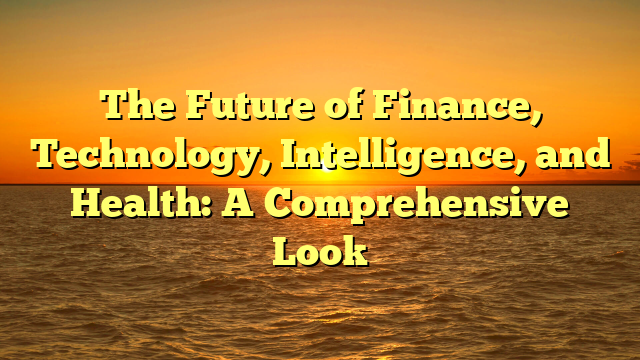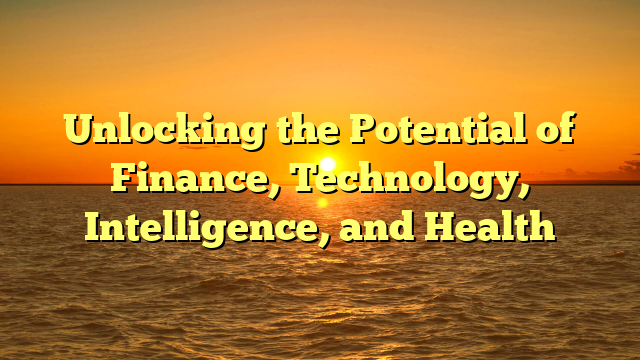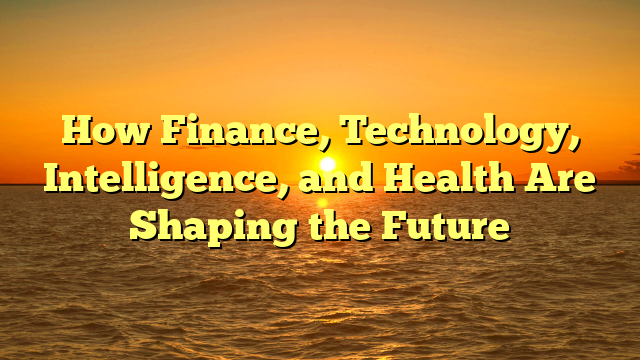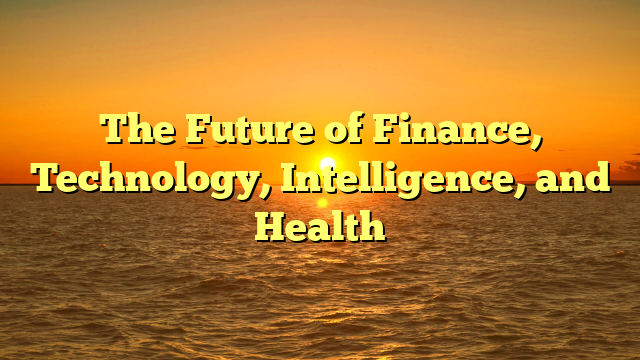
Introduction: In today’s rapidly evolving world, the convergence of financial technology, artificial intelligence, innovation, and healthcare is revolutionizing industries and daily life. As these fields grow increasingly interconnected, they are creating opportunities and challenges that will shape the future. This article explores the interrelationship between these sectors and how their integration is redefining the way we approach personal well-being, economic stability, and technological progress.
Finance and Technology: Advancements in technology have significantly impacted the financial industry. magnumtogel of financial technology, blockchain, and artificial intelligence has led to the creation of more efficient, secure, and innovative financial systems. This has revolutionized everything from everyday banking to investment strategies, allowing individuals and businesses to access financial services with greater ease and speed.
AI is playing a pivotal role in revolutionizing finance, particularly in areas like predictive analytics, fraud detection, and risk management. By analyzing massive datasets, AI algorithms can help financial institutions identify patterns and make more informed decisions. Moreover, blockchain technology is reshaping traditional financial systems by creating decentralized platforms that eliminate the need for intermediaries, enhancing transparency, and reducing costs.
Intelligence and Technology: Artificial intelligence and machine learning are increasingly becoming vital components of various industries, especially in healthcare. AI is revolutionizing medical practices by providing doctors with powerful tools to enhance diagnosis, predict patient outcomes, and offer personalized treatment strategies based on data-driven insights. These innovations are enhancing healthcare delivery and transforming the patient experience.
In the financial sector, AI-driven technologies are enabling automated trading, portfolio management, and fraud detection. With the ability to analyze vast amounts of financial data, AI systems can provide insights and predictions that assist in optimizing investment strategies and minimizing risks. These technologies are also improving efficiency in managing investments and identifying potential fraud.
Health and Technology: The integration of digital health solutions into healthcare is transforming the way we manage our well-being. Wearable devices, telemedicine, and health apps are providing people with new ways to monitor their health and engage in preventive care. With real-time health tracking, individuals can make informed decisions about their lifestyle choices and detect health issues early, promoting better outcomes and overall wellness.
The advent of AI in healthcare has also led to breakthroughs in drug discovery, personalized medicine, and patient care. By analyzing patient data, AI-powered systems can identify potential treatments, predict outcomes, and help doctors make more accurate diagnoses. This level of precision has the potential to improve patient outcomes and reduce healthcare costs by enabling more targeted and effective interventions.
Conclusion: As we look toward the future, the integration of finance, intelligence, technology, and medicine will continue to create new opportunities for innovation and improvement. While challenges remain, particularly around data security, ethical considerations, and regulatory frameworks, the potential for these fields to work together to enhance our quality of life is immense. By embracing these advancements, we can create a more connected, efficient, and healthier world.





